Lead The Way
Future is in your hands.
The amount of sunlight that strikes the earth in just an hour and a half is sufficient to handle the entire world’s energy needs for an entire year.

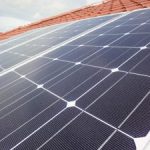
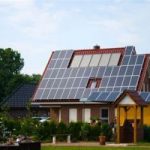

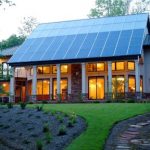
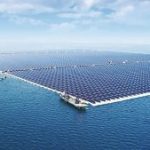
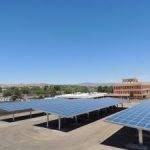
According to the US Department of Energy, the amount of sunlight that strikes the earth in just one hour and a half is sufficient to handle the entire world’s energy consumption for an entire year.
EFFICIENT ENERGY
Solar technology has made considerable advancement since Charles Fritts first developed the photovoltaic cells in 1883. Manufacturers now produce solar panels that can capture and convert solar energy at a superior efficiency than ever before. You can now generate all the power you need at your location and it is clean, free, and in abundance.

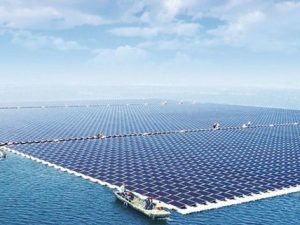
LOW COST
As technology improved, the world has seen a rapid expansion of use of solar energy. Manufacturers have set up large production facilities, thereby reducing the cost of the solar panel. These panels come with performance warranties upto 25 years. Additionally, you do not pay for transmission and distribution. Homeowners and Businesses can now reduce the cost of producing the energy you need. With lower installation cost, you can get free energy for years, saving you thousands of dollars a year.
INCOME GENERATION
With net-metering, you can supply the excess energy you may generate back into the grid, and consume it at night. This allows for you to reduce or even eliminate your electric bill. Most utilities in the country buy back energy. If you have space, you can generate income from your solar installations.
Commercial properties can optimize their real estate to generate more revenue.


LIVE HEALTHY
Using renewable energy reduces your dependency on polluting fossil fuel. Cleaner air and water means better living conditions, which thereby reduces health risks. Every 1 Kw of solar energy generated reduce CO2 emission by . In a year a typical household consumes 10,000 kwh a year. Using Solar Energy will reduce CO2 emission by
PROPERTY VALUE INCREASE
Current buyers are looking for energy efficient homes. They willing to pay a premium for homes that generate its own electricity. The premiums often well exceed the cost of installation. They see it as being environmentally friendly as well as having a reduced cost of electricity. As more millennials become homebuyers, properties that are not energy-efficient do not sell as fast as those that are.
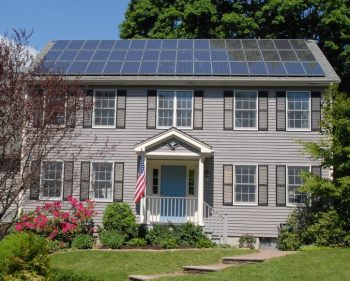
Frequently Asked Questions
What are the financial benefits of solar energy?
When you install a solar energy system on your property, you save money on your electricity bills and protect yourself against rising electricity rates in the future. The savings comes from no cost of fuel, plus elimination of T&D costs. How much you can save depends on the utility rates and solar policies in your area, but going solar is a smart investment regardless of where you live. Additionally, if you generate more than you consume, you may be able to sell it back to your utility company.
What are the environmental benefits of solar energy?
Solar power has many environmental and health benefits. When you burn fossil fuels like coal and petroleum, you produces tons of CO2, which not only pollutes the environment, but also makes our planet warmer. This in turn leads to a whole lot of other effects which harms all of us. Going solar reduces greenhouse gas emissions, which contribute to climate change, and also results in fewer air pollutants like sulfur dioxide and particulate matter, which can cause health problems.
What is net metering?
Net metering is the system that utilities use to credit solar energy system owners for the electricity produced by their solar panels. With net metering, you only pay for the electricity that you use beyond what your solar panels can generate. Net metering policies differ from state to state. You will need to check with your local utility company on this matter.
Will installing a solar system impact my property values?
Studies have shown that homes with solar energy systems sell for more than homes without them. Buyers consider properties with self-generating power more favorably than those that do not.
How do solar photovoltaic (PV) panels work?
Solar panels absorb the sun’s energy throughout the day and convert it into direct current (DC) electricity. Most homes and businesses run on alternating current (AC) electricity, so the DC electricity is then passed through an inverter to convert it to usable AC electricity. At that point, you either use the electricity in your house or send it back to the electric grid.
Do my solar panels produce power when the sun isn’t shining?
The amount of power your solar energy system can generate is dependent on sunlight. As a result, your solar panels will produce slightly less energy when the weather is cloudy, and no energy at night. However, because of high electricity costs and financial incentives, solar is a smart decision even if you live in a cloudy city.
Can I go off grid with solar panels?
When you install solar panels on your property, you will still be connected to the grid. This allows you to draw from the grid when your system is not producing all of the power that you need, and send power back to the grid when you produce more than you use. It is possible to go off the grid with a solar energy system that includes battery storage, but it will cost more. There is no real advantage of being off-grid.
Will I still receive an electric bill if I have solar panels?
Unless your solar energy system includes battery storage and you are fully off the grid, you will still receive a bill from your utility. However, you will be billed for the amount of energy you consume from the grid.
Do solar panels work in a blackout?
If your solar panel system is connected to the grid, it will shut off in the event of a blackout. This is to prevent emergency responders and electricity utility repair-people from being injured by your panels sending power back to the grid. However, there are certain inverters you can buy that provide backup power in a blackout when paired with a battery.
How much will solar panel maintenance cost?
Solar panel systems are made of durable tempered glass and require little to no maintenance for the 25 to 35 years that they will generate power. If something does happen, most equipment manufacturers include warranties, although warranty terms depend on the company.
What are the different types of solar panels?
Every solar panel brand and product has its own unique specification. They vary slightly from one product to the next. The most important aspect is the power generating capacity. Higher the capacity per panel, lower is the number of panels you will need. The solar panel manufacturers offer two types of warranties – manufacturers warranty and performance warranty.
What are the different types of power inverters?
Power inverters convert the electricity your panels produce from direct current (DC) to alternating current (AC) power. There are three types of inverters: centralized inverters, string inverters and microinverters. Each one has its own advantage or disadvantage. Microinverters offer the best operational advantage.
Should I ask for a solar monitoring system for my solar panels?
If you are interested in receiving detailed information about how much energy your solar panel system is producing, ask your installer about solar monitoring system options.
Do I need to install solar batteries with my solar power system?
Solar power systems that include solar batteries, known as solar-plus-storage, are increasingly popular, but can be pricey. Luckily, batteries are not necessary for most solar homeowners. As long as you are connected to the grid, your system does not need a battery: excess power goes back into the grid, and you can draw from the grid if you need more electricity than your panels can generate.
Can I afford to go solar?
If you can afford to pay your electricity bill you can afford to go solar. $0-down solar financing options, including both solar loans and solar leases, make it easy for homeowners with good credit to start saving on their electricity bills by going solar.
What size solar energy system should I get?
The size of your solar energy system will depend on how much electricity you use on a monthly basis, as well as the weather conditions where you live. Take a look at your past electricity bills and compare offers from licensed, pre-screened solar installers to determine the best system size for your needs.
Do I need to replace my roof before installing solar?
Solar energy systems can last for 25 to 35 years, and it can be costly to remove and reinstall them if you need to replace your roof. If your roof needs maintenance in the near term, you should complete it before you finish your solar installation.
How long will my solar power system last?
In general, solar panels are very durable and capable of withstanding snow, wind, and hail. The various components of your solar power system will need to be replaced at different times, but your system should continue to generate electricity for over 20 years.
What happens if I sell my solar house?
If you own your solar energy system, your solar house will likely sell at a premium: studies have shown that solar increases property values.